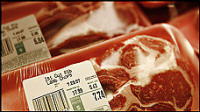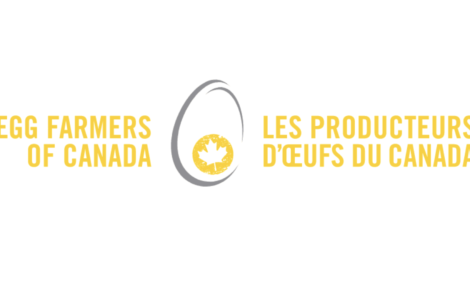



COOL Gets Chilly Reception in Canada
OMAHA - Canadian livestock groups want their country to put more pressure on the U.S. Congress to change the country-of-origin-labeling provisions by threatening a potential trade case against the U.S.
Attorneys for the Canadian livestock groups have told them that the new COOL compromise struck in the House version of the farm bill would violate certain provisions of the North American Free Trade Agreement and other provisions of the World Trade Organization. A separate study by the groups determined the COOL provisions could cost Canadian livestock producers as much as $500 million a year.
Specifically, the Canadian Cattlemen's Association and Canadian Pork Council say any country-of-origin-labeling law would be unfair and illegal if it required meat to be labeled as a foreign product when Canadian or Mexican livestock are sent into the U.S. to be slaughtered and processed into meat cuts.
"It treats animals imported into the United States differently from U.S. animals," said John Masswohl, a spokesman for the Canadian Cattlemen.
USDA has grappled with COOL since the 2002 farm bill, but is pushing ahead with a rule to implement COOL in September 2008.
The House farm bill adopted a COOL provision that reserves "product of the U.S." for meat coming from animals born, raised and slaughtered in the U.S. A second label would state "product of the U.S., Canada and Mexico," for instance, for any meat from livestock co-mingled during slaughter or processing in the U.S., but the label would not require detailed percentage levels. A third foreign label would be used for imported meat.
Some U.S. livestock and farm groups have been adamant throughout the COOL debate that "product of the U.S." be reserved exclusively for animals born, raised and slaughtered in the country. That directly targets livestock imported before processing. Masswohl said it has been a long-established principle that meat is from the origin of the country where the animal is slaughtered regardless of where the animal was born or raised.
"That's always been the practice and that has been incorporated into the NAFTA and into the WTO," he said.
Masswohl said Canadian livestock groups also have met with Mexican counterparts who are "equally concerned" with the issue.
"We're not saying that countries can't have country-of-origin labeling or even that you can't have mandatory country-of-origin labeling," Masswohl said. "The question is how do you devise it."
Sen. Charles Grassley, R-Iowa, said Wednesday he doesn't understand why Canada would have issues with the new proposal. The House bill provides such broad discretion on labeling, Grassley said, that he didn't think it would cause problems for anyone.
"There is no trade impediment in any of that, so what's the problem?" Grassley said.
Senate Agriculture Committee Chairman Tom Harkin, D-Iowa, has said he expects to adopt the House compromise on COOL, but would clean up the language somewhat in his chairman's mark.
The House Agriculture Committee also loosens penalties and record-keeping requirements for producers. Given the lack of animal identification in the U.S., the proposal creates an "honor system" rife with the potential for abuse, Masswohl said.
"I just wonder how many Mexican cattle that come into the country as feeders, what is the origin of those cattle going to be coming out of the feedlots?" he said.
In terms of challenging the law, the WTO only allows a country to challenge a provision after it goes into effect. Under NAFTA, Canada or Mexico could bring a challenge against a proposed measure. Right now, the Canadian livestock groups want leaders in the Canadian government to send a letter to the Senate Agriculture Committee, as well as the Senate Finance Committee and the House Ways and Means Committee to argue their case against COOL.
"We want them to communicate to Congress, to let them know that if this gets passed that the United States' best customer believes that it violates trade agreements," Masswohl said.
Canada has its own country-of-origin-labeling requirements, but live cattle imported from the U.S. do not have to be labeled as "product of the U.S." under the Canadian rule because of provisions about processing the livestock and meat.
Canada also has internal disputes about animal carcasses that are brought into the country, carved up, then labeled as "product of Canada." Some people believe carcasses imported into Canada and cut up should not simply be given a domestic label.
"That is a debate going on up here and a gray area in the law," Masswohl said.











